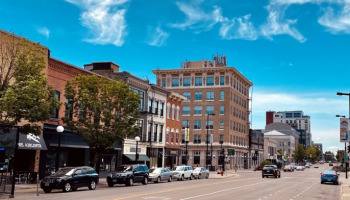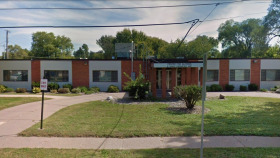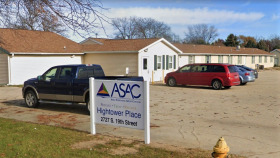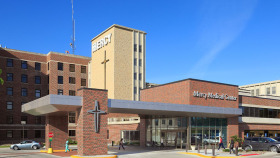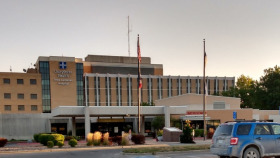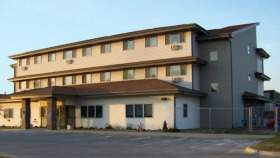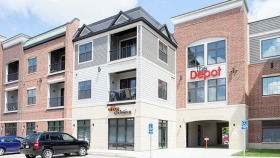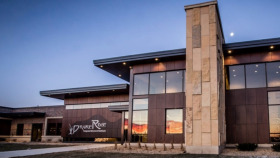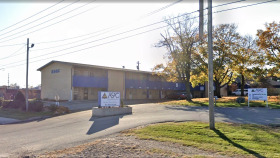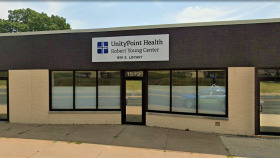Expert Insights
The drug overdose death rate in Iowa has historically been about half the national average. And while that’s good news, other data are not so promising. The number of lives lost in Iowa to drug overdose roughly doubled between 2011 and 2021.
Like other states, opioids are the primary driver, contributing to more than half of drug-related deaths in the state. Today’s fentanyl crisis has only exacerbated the problem, accounting for nearly 90% of opioid-related fatalities in Iowa in 2023. But there is good news for Iowans experiencing opioid dependency.
The state is home to more than 250 outpatient addiction recovery centers, nearly 100 inpatient rehabs, and almost 60 dedicated detox programs. And that means there is hope. You can break the chains of opioid addiction and regain the healthy future you deserve.
~ Gayle Morris, BSN, MSN
How Much Does Drug Rehab Cost in Iowa?
Iowa is ranked 46th nationwide in terms of addiction treatment affordability, with an average cost of drug and alcohol rehab of $60,174 (without insurance).
- Medical detox is the most expensive, with an average cost of $148,351
- Long-term inpatient drug rehab in Iowa costs an average of $53,100
- Outpatient addiction treatment in Iowa costs an average of $8,823
- Outpatient methadone treatment is the most affordable, with an average cost of $7,839
The exact cost of addiction treatment in Iowa depends on several factors, including:
Types of care (outpatient or inpatient)
Amenities and features offered by treatment facilities
Duration of program (short-term, long-term, or detoxification)
Insurance provider coverage
Types of recovery support services
Location and size of facility (city or rural)
Paying for Addiction Treatment in Iowa
Private Pay and Insurance
There are many major commercial health insurance carriers in the state of Iowa. Additionally, three insurers offered exchange plans on the Marketplace in 2024. Providers include:
Wellmark Blue Cross Blue Shield of Iowa
Considered one of the major insurance providers in the state of Iowa, they follow Affordable Care Act (ACA) guidelines covering substance use disorder treatment. This includes inpatient and outpatient treatment and counseling services. They may offer programs for participants such as case management and virtual appointments with health care providers depending on individual benefit plans. Individuals are encouraged to contact the insurance provider to determine what are covered services, assistance in finding providers that are in-network and for out-of- pocket costs.
United Healthcare of Utah
Alcohol and Substance Use Disorder treatment are covered services with UHC. Benefit plans differ, so individuals will need to check their Explanation of Benefits (EOB) summary to find out what is a covered service and what the out-of-pocket costs will be. UHC offers members a 24/7 substance use helpline number at 1-855-780-5955, individuals or family members can call in crisis or for information regarding treatment options, provider directory and resources in their community.
Health Partners of Iowa
Health Partners of Iowa offers alcohol and substance use disorder treatment. Their care management services help to connect individuals with treatment options that are covered by their benefit plan. The covered services depend on the type of insurance plan the individual is enrolled in and may include counseling services and medication assisted treatment (MAT). MAT has been shown to decrease relapse rates and help individuals cope with withdrawal symptoms and cravings. The out-of-pocket costs will differ depending on the services and amount of coverage dictated under their plan.
Medica
Many treatment options for alcohol and substance use disorder are covered by Medica and include inpatient and outpatient treatment and individual family and group therapy. Most services do not require prior authorization but individuals should always check their benefits summary to find out what the guidelines are for treatment and what out-of-pocket expenses to expect.
CoOportunity Health
CoOportunity Health is an insurance company providing services in Iowa and Nebraska. They offer plans through the Marketplace and cover individuals and families. They follow Affordable Care Act (ACA) guidelines for alcohol and substance use disorder treatment. Benefits differ between plans. Individuals are encouraged to contact them to determine what are covered benefits, out-of-pocket expenses and if prior authorization for treatment is needed.
Medicaid
Iowa provides health insurance coverage for residents who meet certain criteria such as income level, state residency, be a U.S. citizen or national, legal permanent resident or qualified alien and may need to fall under a certain asset test to qualify under their Iowa Health Link program. These Medicaid plans cover inpatient and outpatient substance use disorder treatment services at facilities that accept this type of insurance. Prior authorization is often required for services. Participants should contact their insurance provider to determine what are covered benefits, what outside costs they may incur, and to help them locate providers that participate in the Iowa Health Link program.
Medicare
Medicare provides insurance coverage for individuals over the age of 65 and some folks with disabilities and certain disorders. Medicare Part A pays for inpatient substance abuse treatment. Clients are required to pay the same co-pays they would be charged for any other type of inpatient hospitalization. For those with Medicare Part B, outpatient substance abuse treatment services from a clinic or hospital outpatient department are covered. Medicare Advantage plans can help pay for services such as prescription drug coverage that is not covered as a part of Part A or Part B. Services must be received at a facility or practice that participates in Medicare.
Military Insurance
TRICARE and VA benefits are accepted at participating providers throughout the state of Iowa. For those with alcohol and substance use disorders, the Veterans Administration offers inpatient and outpatient services at their clinics and hospitals at no cost.
Tribal funding/programs
All individuals of Native American or Alaska Native descent are eligible for health care and Medicaid through the Indian Health Service (IHS). Alcohol and substance use disorder treatment are covered services.
Other Low-cost Options
For those individuals without commercial insurance, government sponsored insurance, or insurance through military service, some providers will accept sliding scale payment options, no fee for service, or financial aid. Clients will need to speak with service providers to find out what options are available to them.
Low-Cost and Free Drug Rehab Centers in Iowa
Drug and alcohol rehab centers in Iowa vary from private (for-profit or non-profit) to government-funded (local, state, federal, and tribal). About 60% of substance use programs in Iowa receive public funds, which has helped make many low-cost and free options available across the state for people with no insurance or no income. These facilities usually require that potential patients validate their residence within the state, substance use status, and absence of insurance and income.
Apart from choosing a government-funded facility, there are some other ways you can access affordable alcohol and drug use treatments, such as:
- Obtaining a referral from the Substance Abuse and Mental Health Services Administration (SAMHSA)
- Finding a facility that offers affordable financing or payment options
- Choosing a sliding fee scale
- Applying for scholarships
As of 2024, there were over 190 drug rehab facilities across the state of Iowa. These facilities accept several payment methods. Of those treatment facilities, the following numbers reflect how many offer free or low-cost addiction treatment programs:
There are 80 low cost or free addiction treatment centers in Iowa. Their services include inpatient and outpatient treatment options, including intensive outpatient treatment, relapse prevention, and aftercare programs.
Some of these treatment options also include medication assisted treatment (MAT) where clients receive medications such as naltrexone, methadone, and buprenorphine to ease withdrawal symptoms and decrease cravings.
Many individuals experiencing alcohol and substance use disorder also have co-occurring mental illnesses. These can include bi-polar disorder, depression, anxiety, and PTSD. As a result, many addiction treatment centers in Illinois offer mental health services as well. Case management services also engage those facing homelessness, food insecurity, and unemployment by connecting clients with resources in their communities.
Often, clients work with healthcare and insurance specialists to enroll in state funded health care plans such as Medicare or Medicaid.
SAMHSA
The Substance Abuse and Mental Health Services Administration (SAMHSA) website offers those interested in Buprenorphine assisted treatment for opioid dependence a practitioner locator map. This is a national map .
Iowains can go to the website, search Buprenorphine Practitioner Locator, find the map, and click on their state. Here, they’ll find a list of healthcare providers that are licensed to prescribe this medication. MAT has been shown to decrease the symptoms of withdrawal and cravings and improve relapse rates.
Your Life Iowa
Your Life Iowa is a service of the Iowa Department of Health and Human Service that assists those who’re looking for help and education related to Alcohol and Substance Use Disorder.
They offer a 24/7 telephone helpline that provides education, confidential support and can aid in connecting people to appropriate resources such as treatment center locations in their area. In addition, their support professionals can assist those with concerns over co-occuring crises, such as suicide and mental health concerns.
Iowa Harm Reduction Coalition
Iowa Harm Reduction Coalition is a 501(3)(C) organization that works to provide education, advocacy and community outreach to Iowains affected by substance use disorder. Their Health and Social Services programs have outreach in five metro areas. These areas are Cedar Rapids, Davenport, Des Moines,Dubuque and Iowa City. IHRC’s trained professionals work with those who are at high risk for infection, overdose and homelessness.
They provide medical care to those who might be at risk for infection through intravenous drug use by linking individuals to medical treatment, overdose education and distribution of Naloxone, and case management services to assist those at risk of or experiencing homelessness to find rapid re-housing programs.
United Way of Iowa
The United Way of Iowa offers Iowans resources for alcohol and substance use disorder education, prevention services and treatment information. Their 2-1-1 service is a resource that can be accessed from any Iowa county by dialing 2-1-1 on a cell or landline telephone.
Here, one can reach care workers that can answer questions and direct them to services. Additionally, they can offer resources for those who may face homelessness, food and medical service insecurity and domestic abuse.
CRUSH of Iowa
CRUSH of Iowa is a non-profit organization that works in the Cedar Rapids area. They’re an organization that provides community support and educational services for those facing or affected by substance use disorder. They are a Narcan distribution site, providing the drug for use in overdose prevention and education on use and administration.
Additionally, they offer support groups for individuals and families and programs like Art Group and yoga. CRUSH is also a resource for finding treatment programs and has specialized programs for the Native American population.
Iowa Drug Use Statistics
A 2017-2018 survey on alcohol and drug use statistics showed that Iowa ranked:
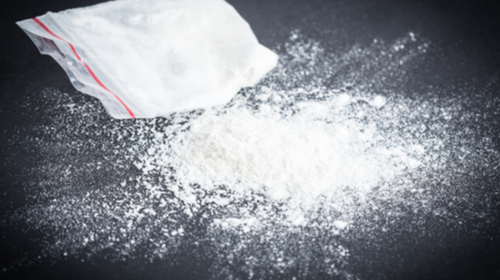
37th in yearly heroin use
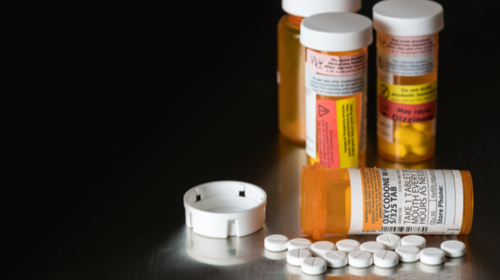
17th in yearly pain reliever misuse
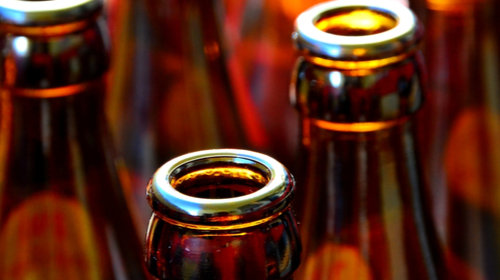
10th in past-year binge drinking
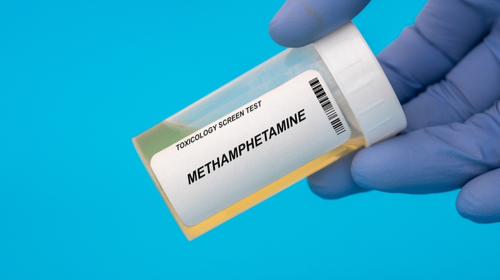
19th in past-year methamphetamine use
Drug Laws in Iowa
Driving Under the Influence (DUI)/ Operating Under the Influence (OUI)
In Iowa, this law pertains to the use of alcohol or any controlled substance or a combination of both while operating a motor vehicle. This can include: car, truck, boat, motorcycle or RV.
- To be charged with DUI/OUI an individual over the age of 21 is found to have a blood alcohol concentration (BAC) of 0.08 or above or have the presence of a controlled substance, such as marijuana or opioids, in their system.
- A 1st offense can result in up to 1 year in jail and a $1,000 fine. For 2nd offenses, that are within 12 years of the first offense, individuals could face up to 2 years in prison and a $2,500 fine. A 3rd offense is considered a felony, resulting in 5 years in prison and a $5,000 fine and a loss of driving privileges for 6 years.
- Individuals can be found guilty of DUI/OUI even if the person is not driving. This means if the car is parked but the ignition is on, a person can be found to be driving or operating under the influence.
Iowa Medical Cannabidiol Laws and Rules- Statute Iowa Code Chapter 124E
Enacted in 2017, medical marijuana use became legal in the state of Iowa. Individuals with certain medical conditions can legally possess and use marijuana as prescribed by an authorized medical professional.
- They’ll be required to become registered cardholders within the state of Iowa. Cannabidiol products can be in vaporizable, oral, topical nebulized and suppository forms. There’s no limit on the amount of medical cannabidiol a registered cardholder can possess.
- Registered cardholders can’t possess flower, also known as loose leaf or joints, or THC-infused products such as gummies or other edibles containing marijuana.
Marijuana possession 124.401
While medical marijuana is legal with a registered medical use card, recreational use is illegal in Iowa. Cultivating, growing, possession with the intent to distribute, and possession of marijuana paraphernalia such as bongs or pipes is prohibited.
- The 1st offense of marijuana possession is a misdemeanor, where an individual could face up to six months in jail and a fine up to $1,000. There’s a mandatory 48 hour minimum in jail. Probation will often be required.
- A 2nd offense of marijuana possession, will be charged as a more serious misdemeanor, facing up to 1 year in prison and a fine of $2.560.
- A 3rd offense of marijuana possession is an aggravated misdemeanor if the prior two convictions were for possession of marijuana. If convicted, an individual faces up to two years in prison and a fine up to %8,549 plus a 15% surcharge and court costs. The court costs for an aggravated misdemeanor is $100.00.
- In this case, if the prior possession charges were for anything other than marijuana, this 3rd offense becomes a class D felony punishable by up to 5 years in prison and a fine of $10,245.
- For possession with the intent to distribute, the punishments are much harsher.
- For distribution/sale of less than 50 kilograms, there’s a special class D felony chart with a fine of not less than $1,000 or more than $7.500 and may also have a sentence of not more than 5 years imprisonment.
- For distribution/sale of more than 50 kilograms but less than 100 kilograms, there’s a special class C felony that includes a fine of not less than $1,000 or more than $50,000. Individuals will face a sentence of not more than 10 years.
- For distribution/sale of more than 1000 kilograms, but less than 1000 kilograms, there’s a special class B felony that includes a fine of not less than $5,000 or more than $100,000 and imprisonment of not more than 25 years.
- For distribution/sale of more than 1000 kilograms, there’s a special class B felony with a fine of not greater than $1,000,000 and a sentence of not more than 50 years imprisonment.
HF 595 – Controlled Substances, Penalty Enhancements and Fentanyl Penalties (LSB1229HV.1)
In 2023, the Iowa state legislature added Fentanyl to the list of controlled substances under this law and enacted stricter penalties when Fentanyl is involved.
- This law dictates that the manufacture, delivery, or possession of a Fentanyl-related substance containing more than 50 grams is considered a Class B felony with a penalty of no more than 50 years confinement and a $1.0 million fine.
- The manufacture, delivery or possession of a Fentanyl-based substance containing more than 5 grams but not more than 50 grams is considered a Class C felony with a penalty of confinement for no more than 25 years and a fine of not less than $5,000 or more than $100,000.
- The manufacture, delivery or possession of a Fentanyl-related substance containing 5 grams or less is a Class C Felony with a penalty of confinement for no more than 10 years and a fine of not less than $1,000 or more than $50,000.
Good Samaritan clause.
Additionally under HF 595 – Controlled Substances, Penalty Enhancements and Fentanyl Penalties
- (LSB1229HV.1) A person in a position to assist and administer an opioid antagonist such as Narcan, when prescribed by an authorized provider and is acting responsibly and in good faith many not be held liable for an injury arising from the administration of the antagonist under the belief that the person receiving the medication is experiencing an opioid-related overdose.
Resources
- Governor’s Office of Drug Control Policy. (2021). Drug Trends in Iowa Evolving Health, Safety & Response Issues.
- Iowa Department of Public Health. (2022). Your Life Iowa.
- CoOpportunity Health. (2024). Overview: Company information. https://www.cooportunityhealth.com/aboutus/
- CRUSH of Iowa. (2024). CRUSH of Iowa: In the news. https://www.crushofiowa.com/
- Health Partners. (2024). Alcohol and substance use support for members. https://www.healthpartners.com/insurance/members/health-programs/alcohol-and-substance-use/
- Iowa Health and Human Services. (2024). Your life Iowa homepage. https://yourlifeiowa.org/






